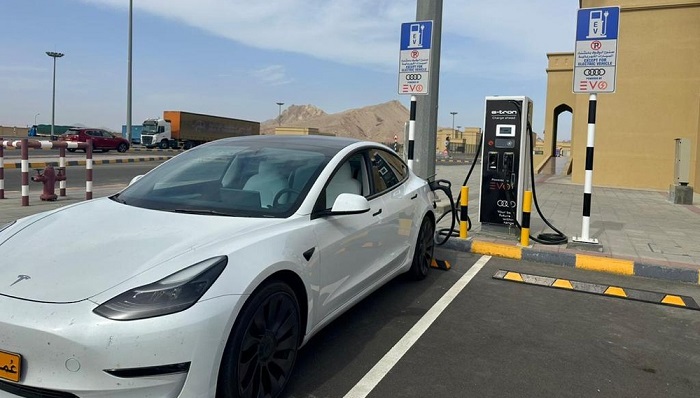The Sultanate of Oman has seen a significant increase in the number of electric vehicles (EVs) in 2024, with 1,500 EVs compared to just 550 in 2023. Eng. Khamis bin Mohammed Al Shamakhi, Undersecretary of the Ministry of Transport, Communications and Information Technology for Transport, highlighted the importance of green mobility in Oman’s sustainable development agenda. The government has been taking steps towards achieving the vision of the future of green mobility by 2050 to reduce carbon emissions. The ministry has been working on infrastructure development, aiming to install over 350 charging points for electric vehicles by 2027 in various governorates across the country.
In terms of infrastructure development, the Ministry of Transport, Communications and Information Technology, in collaboration with the private sector, has been actively focusing on installing charging points for electric vehicles. They installed over 120 charging points in 2023 and are expecting to have more than 200 by the end of this year. The number is projected to reach over 350 by 2027, which will further encourage the adoption of electric vehicles in the Sultanate of Oman. Efforts are also being made to convert port equipment to operate on electric power and make airports more environmentally friendly through various upcoming initiatives such as sustainable fuel production for aircraft.
The Ministry of Transport, Communications and Information Technology has implemented several local initiatives to promote green mobility in the Sultanate of Oman. This includes the initiative to implement the Dibba-Lima-Khasab road project using electrical equipment to reduce carbon emissions, which is a pioneering effort in the Middle East. Additionally, they have launched the Green Corridors Project for trucks running on green hydrogen energy, as well as a pilot project to introduce electric bicycles in food delivery services. These initiatives aim to reduce emissions and promote sustainable transportation methods.
The recent Second Green Mobility Forum in Salalah brought together experts and specialists from Oman and other Gulf Cooperation Council countries to discuss ways to enhance green mobility in the region. The forum focused on encouraging the use of electric and hybrid vehicles, establishing an integrated network of charging stations, and implementing modern technologies for electric vehicles. One of the major outcomes of the forum was the development of innovative spare parts technologies for electric and hybrid vehicles, which will reduce maintenance costs, improve efficiency, and encourage their use.
The forum also proposed a joint platform to determine the locations of charging devices, making it easier for drivers to access information related to charging locations, available energy, and charging prices. This initiative aims to enhance the driver experience and encourage the use of electric vehicles, ultimately increasing network efficiency and promoting green methods in GCC ports for shipping. By collaborating on joint projects in the field of green mobility, member states can increase investment efficiency and reduce costs, further advancing sustainable transportation practices in the region.
Overall, the rise in electric vehicles in Oman highlights the country’s commitment to green mobility and sustainable development. By implementing infrastructure developments, local initiatives, and participating in forums like the Second Green Mobility Forum, Oman is making significant strides towards reducing carbon emissions, promoting sustainable transportation methods, and fostering collaboration with other GCC countries to achieve common goals in green mobility.











